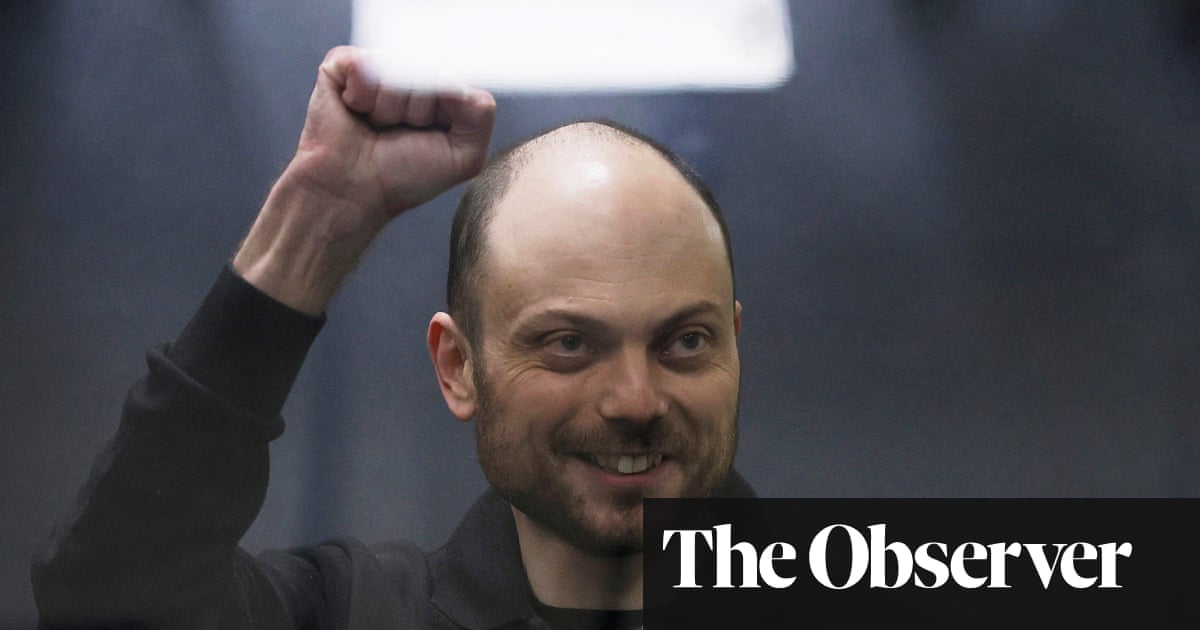- cross-posted to:
- ukraine@sopuli.xyz
- cross-posted to:
- ukraine@sopuli.xyz
The last time I met Evgenia Kara-Murza, it was a grim day in early March. The timing couldn’t have been worse. As we spoke, Alexei Navalny’s coffin was being lowered into the frozen ground in a Moscow cemetery. Meanwhile Evgenia’s husband, Vladimir Kara-Murza, was still incarcerated in a Siberian prison cell almost identical to the one in the Arctic Circle in which Navalny had been found dead, presumed murdered.
The prospects were so grim and the news from Russia and Ukraine so unrelentingly depressing, it feels almost unimaginably miraculous six months later to see Evgenia walk into the lobby of a London hotel, this time with Vladimir right next to her. Six weeks ago, he was in a Siberian gulag. Today, he’s a free man on a trip to London with his wife and their youngest son, nine-year-old Daniel, the result of the largest prisoner exchange between Russian and the west since the cold war.
Most people he met in the Russian prison system, “the police officers, prison officials, judges, prosecutors, they don’t believe in anything”. Most are not pathological sadists, he says, they were just doing a job. “But the Alpha Group, the FSB special unit that was escorting us, I saw ideological hatred. They believe in this stuff and that’s even scarier.”
Kara-Murza’s grasp of history underpins his certainty that Putin’s regime will collapse – quickly and without warning. “That’s how things happen in Russia. Both the Romanov empire in the early 20th century, and the Soviet regime at the end of the 20th century collapsed in three days. That’s not a metaphor, it was literally three days in both cases.” He believes passionately that the best chance of a free and democratic Russia and peace in Europe rests on Russia’s defeat in Ukraine.



I mean that’s generally how these things go. The regime collapses when it can no longer keep the internal conflict or economic strife quiet. It starts before it ends, but we don’t know it’s happening until it ends.
It’s like the Hemingway quote about going bankrupt:
Dont wanna be pedantic, but I think the quote was
Don’t wanna be pedantic (yes I do) but after a little bit of searching, the originally presented quote seems correct (without the “and” though, it seems). Your version is mixed with a common misquote “Slowly at first, then all at once.” of that quote.